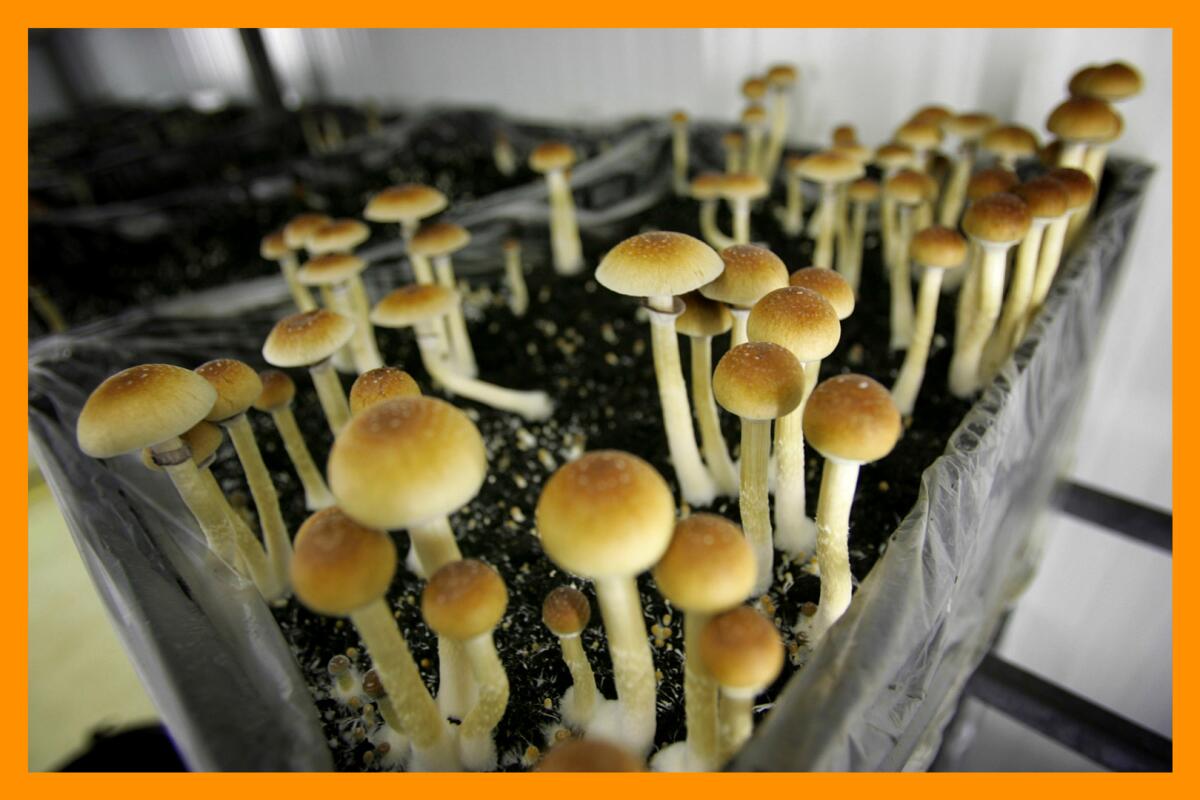FDA widens door to research on psychedelics like ketamine, LSD for treatment of PTSD, depression

The U.S. Food and Drug Administration set forth new guidance for research on psychedelics like LSD or psilocybin and other drugs like ketamine or MDMA for the treatment of post-traumatic stress disorder, depression and other mental health conditions.
The move by the FDA has researchers, advocates for veterans and others hopeful for the development of better medication for frequently diagnosed disorders. The guidance, published June 23, comes amid a growing body of studies suggesting hallucinogenic drugs taken in a clinical setting and accompanied by therapy can be an effective form of treatment in patients who have seen little improvement using conventional anti-depressants.
“We have anti-depressants that work in 30% of the patients with major depression fairly well,” Daniele Piomelli, neuroscientist and director of UC Irvine’s Center for the Study of Cannabis said during an interview Thursday. “They work OK in another 30% of the patients, and don’t work at all in the last third of the patients. With conditions like depression, we’re talking about millions of people in the United States.”
Anti-depressants are even less effective at helping people handle PTSD, but are practically the only form of medication prescribed for its treatment, Piomelli said. They may have some impact on the mood of people diagnosed with the condition, but conventional drugs do little to combat nightmares and many other underlying symptoms experienced by those patients.
In a study published by the American Journal of Psychiatry in 2021, 10 out of 15 patients with PTSD who were given ketamine, a potent anesthetic with hallucinogenic properties, experienced a significant reduction of symptoms as soon as one day later. And in those who were responsive to it, the effects lasted an average of about a month after treatment ended.
Long-term research conducted by John Hopkins University and featured by the Journal of Psychopharmacology in Feb. 2022 suggests that therapist-guided sessions under the effects of psilocybin, the active ingredient in hallucinogenic mushrooms, were able to dramatically reduce symptoms of depression in patients for up to a year after treatment. Other drugs that had previously considered to have little to no medical use like MDMA or LSD have also been shown to have beneficial effects in people with depression, PTSD, substance abuse disorder and other mental health conditions.
“Psychedelic drugs show initial promise as potential treatments for mood, anxiety and substance use disorder,” Dr. Tiffany Farchione of the FDA’s Center for Drug Evaluation and Research wrote in a statement. “However, these are still investigational products. Sponsors evaluating the therapeutic potential of these drugs should consider their unique characteristics when designing clinical studies.”
Psychedelics and other drugs being considered as experimental treatment for mental health conditions are not typically habit-forming and have relatively low toxicity, according to researchers at John Hopkins. However, their powerful hallucinogenic effects can lead to erratic and potentially dangerous behavior when taken unsupervised, or can result in what’s colloquially known as a “bad trip,” where negative factors in the environment contribute to intense anxiety, dysphoria or paranoia during a session. And extremely rare cases of prolonged psychosis, in which people feel the effects of psychedelics days or even months after using them, have been recorded.
The drugs operate in complex ways in the brain that scientists are still working to fully understand, UCI’s Piomelli said. He said psychedelics have to be treated with “respect,” and stressed the importance of having monitored, clinical settings for research and therapy involving power psychoactive chemicals.
The therapeutic use of psychedelics among indigenous cultures in the Americas and elsewhere is well-documented. Past generations in the U.S. had begun looking into their possible uses as medication, but that research came to an abrupt halt with the passage of the Controlled Substances Act in 1971.
The guidance issued by the FDA presents a possible “paradigm shift” in the study of mental health disorders, Piomelli said.
“What we are witnessing now at the federal level is slow,” he said. “But it’s part of an increasing, growing sensibility toward these potential tools, which as I said have been set aside with no good reason, in reality. There were political reasons, ideological reasons, but no good medical reasons.”
FDA’s action sparks hope in veterans
The potential for developing new medications for mental health disorders has sparked hope for advocates for veterans like Tom Sauer of Miramar Health, a mental health and addiction treatment company based in Laguna Hills. Former members of the military are disproportionately diagnosed with PTSD, depression, manic-depressive disorder or alcohol-related problems. And male veterans with those conditions exhibited a significantly increased risk of suicide.
“Out of the 250+ veterans we’ve treated, nearly every single one of them suffers from depression or PTSD, often both,” Sauer wrote in an email Thursday. “The addictions they suffer from are quite often not the cause, but the symptoms.”
Sauer said he’s concerned about potential risks in using psychedelics to assist in therapy, especially if patients aren’t carefully screened and prepared for the experience. But he’s cautiously optimistic, given the urgent need to develop more effective treatment for mental health disorders.
He said he co-founded Miramar Health in part because he grew up in a home “scarred by mental illness and addiction.” Just a few weeks before he shipped out with the Navy in 1999, his father died as the result of a methamphetamine overdose.
“Since then, addiction and mental health in this country has only gotten dramatically worse,” Sauer said. “So I decided to do something about it. We’re not here to change the world, but if we can change the world for some people and make the world a little better than we found it, then that’s a win in my book.”
All the latest on Orange County from Orange County.
Get our free TimesOC newsletter.
You may occasionally receive promotional content from the Daily Pilot.




